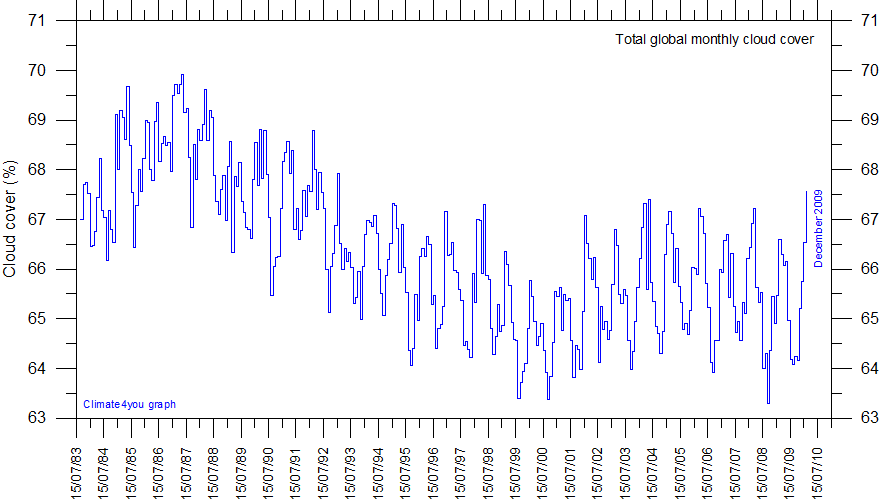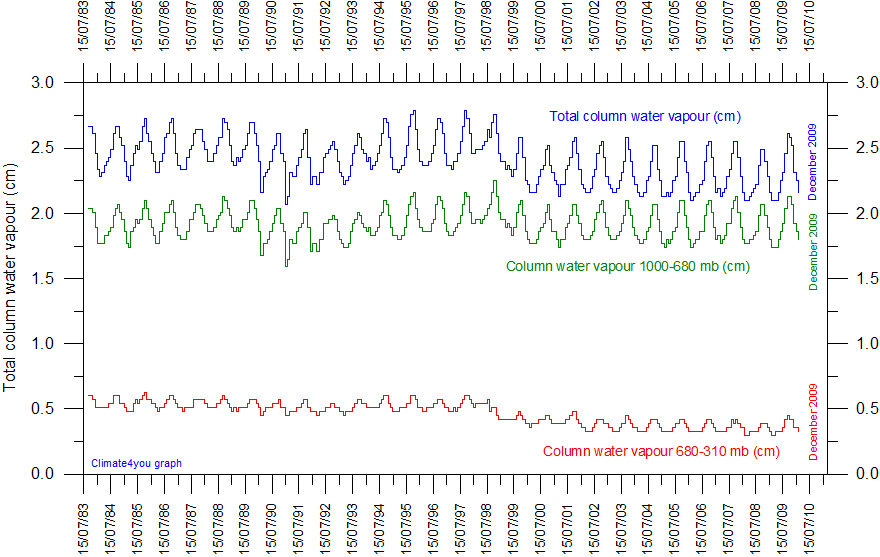The Missing Link, Creationism and Climate Change
Posted on 17 July 2010 by gpwayne
Guest post by Graham Wayne
I’ve always thought it rather specious to demand conclusive causative evidence that anthropogenic CO2 causes climate change. Skeptical Science has frequently demonstrated how good a case science can make for anthropogenic climate change (ACC), including a round-up of multiple lines of empirical evidence.
Yet the evidence does not impinge on some arguments. In desperation, I’ve also tried logic – don’t laugh – and it’s hard to know quite how the wheels can come off so fast, except to observe that logic depends on conventions that both sides of a debate must consistently observe. The glorious advantage of the ‘missing link’ argument is, as creationists already know, it presents a perfect, self-reinforcing paradigm of scientific failure, built on the straw foundations of mathematical proofs applied to linear systems; predictable – if not inviolable, processes. The inferential science of observation and rationalisation is demeaned and denied, even though a control Earth to play with is a patently absurd idea. So many arguments depend on the exclusive precepts of classical science; rule and regulation, set in stone (or so they appear to the unwary). Too bad the ecosystem doesn’t work like that.
* * *
William of Ockham’s razor often gets wielded in a dangerous manner. When you apply it properly, you have a fairly standard reductionist chain of inference that leads to anthropogenic climate change, because no other contender is left standing. This isn’t a popular line of reasoning in the climate debate, however, because it lends itself to easily to rebuttals that focus on what you might call a negative proof e.g. ‘it’s what is left’. In fact, science works through many hypotheses in this way, starting with as many ideas as can be generated, before testing them with the ubiquitous razor – truly the cut and thrust of science: last theory standing.
Personally, I don’t have any problem with this rationalisation, although I have read enough science to know that the evidence is very coherent. I was won over by the sheer weight of it; overpowered, actually. Only the cautionary note of scepticism remained: it was theoretically possible that some exotic, as yet undiscovered, causative mechanism was at work, heating up the planet. Theoretically. The weight I assign to this probability is measured by the time we’ve had to postulate, let alone find, such a mechanism. For all the hot air, the denial industry has failed spectacularly to suggest anything that fits all the criteria.
All the criteria. There it is; the catalyst for this article. I’ve been looking for a better way to explain how climate science adds up, and when I read Naomi Oreskes reference to "multiple, independent lines of evidence converging on a single coherent account", I found what I was looking for.
Climate science is a Pandora’s box, out of which come primary questions. These questions, which are fundamental, cannot be un-asked; we asked what would happen to the climate if we artificially increased the proportions of greenhouse gases (GHGs) and the answer is important. Science cannot get bored with the question, turn to something more interesting. Nor can it be halted by threat, by intimidation or censure, by propaganda or popular opinion. We are compelled now, as ever, to answer the primary questions that science is asking. And when we consider the sheer scope of potential and observed climate changes and the multi-disciplinary range of investigation, it becomes evident how powerful a paradigm anthropogenic climate change really is, for it is the ‘single coherent account’ that Oreskes identifies so well.
Anthropogenic climate change is not where science starts, thinking to fit the theory to as many phenomena as it can. ACC is where you end up following any single line of enquiry. Only when you reach this destination do you look around, to discover that everyone else has arrived at the same terminus. This is the consensus of climate change: the end point of all journeys for those studying sea level rises, the Arctic, the Antarctic, the glaciers and the ice caps, the changes in precipitation, seasonal periodicity, changes in ocean pH, weather events, droughts and famines, resource management, agriculture – and every effect being studied is occurring simultaneously. (I cannot stress how important I believe this last point to be: nearly all phenomena associated with climate change have occurred in the past – and this is a common argument of course. What rarely gets asked is this: at what point in the history of the earth did all these things happen at the same time, and at the same speed?)
Every discipline that finds itself affected or threatened by climate change reaches the same broad conclusion, the ‘single coherent account’ that is anthropogenic climate change. It is time we stopped pretending there is likely to be another theory, another causative agent, that could be changing the planet’s ecosystem, and owned up. So far, we look rather more like children crying ‘I didn’t touch it...it fell all on its own’, than adults accepting responsibility for what we do. We have a coherent account; let’s match it with actions that are equally coherent, and let’s do it while we can, because we are surely running out of time.
You can catch more of Graham's musings at gpwayne.wordpress.com.































 Arguments
Arguments























 0
0  0
0








Comments